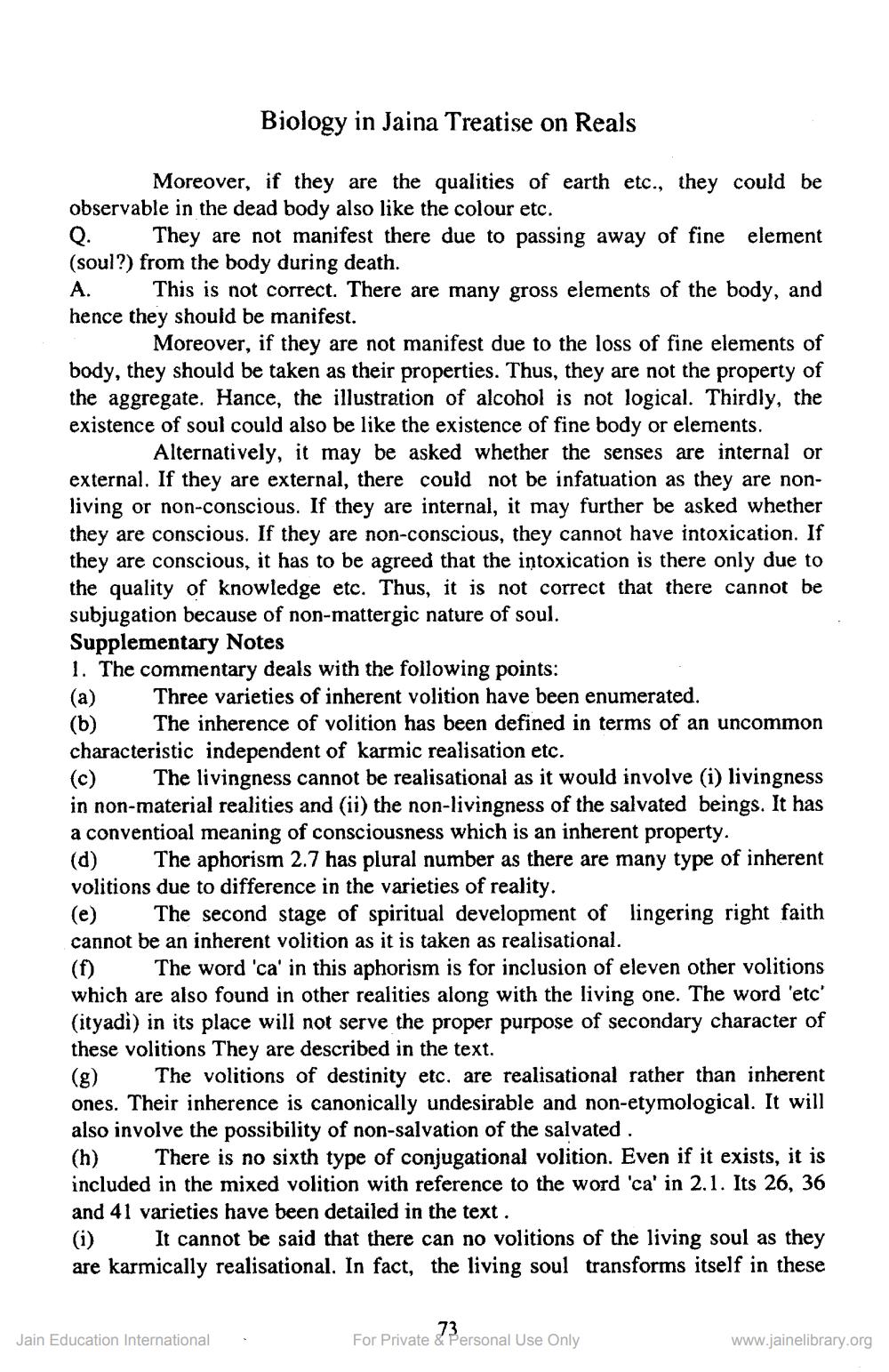________________
Biology in Jaina Treatise on Reals
Moreover, if they are the qualities of earth etc., they could be observable in the dead body also like the colour etc.
Q. They are not manifest there due to passing away of fine element (soul?) from the body during death.
A. This is not correct. There are many gross elements of the body, and hence they should be manifest.
Moreover, if they are not manifest due to the loss of fine elements of body, they should be taken as their properties. Thus, they are not the property of the aggregate. Hance, the illustration of alcohol is not logical. Thirdly, the existence of soul could also be like the existence of fine body or elements.
Alternatively, it may be asked whether the senses are internal or external. If they are external, there could not be infatuation as they are nonliving or non-conscious. If they are internal, it may further be asked whether they are conscious. If they are non-conscious, they cannot have intoxication. If they are conscious, it has to be agreed that the intoxication is there only due to the quality of knowledge etc. Thus, it is not correct that there cannot be subjugation because of non-mattergic nature of soul. Supplementary Notes
1. The commentary deals with the following points:
(a)
(b)
Three varieties of inherent volition have been enumerated.
The inherence of volition has been defined in terms of an uncommon characteristic independent of karmic realisation etc.
(c) The livingness cannot be realisational as it would involve (i) livingness in non-material realities and (ii) the non-livingness of the salvated beings. It has a conventioal meaning of consciousness which is an inherent property.
(d) The aphorism 2.7 has plural number as there are many type of inherent volitions due to difference in the varieties of reality.
(e) The second stage of spiritual development of lingering right faith cannot be an inherent volition as it is taken as realisational.
(f) The word 'ca' in this aphorism is for inclusion of eleven other volitions which are also found in other realities along with the living one. The word 'etc' (ityadi) in its place will not serve the proper purpose of secondary character of these volitions They are described in the text.
(g) The volitions of destinity etc. are realisational rather than inherent ones. Their inherence is canonically undesirable and non-etymological. It will also involve the possibility of non-salvation of the salvated.
(h) There is no sixth type of conjugational volition. Even if it exists, it is included in the mixed volition with reference to the word 'ca' in 2.1. Its 26, 36 and 41 varieties have been detailed in the text.
(i) It cannot be said that there can no volitions of the living soul as they are karmically realisational. In fact, the living soul transforms itself in these
Jain Education International
73
For Private & Personal Use Only
www.jainelibrary.org




